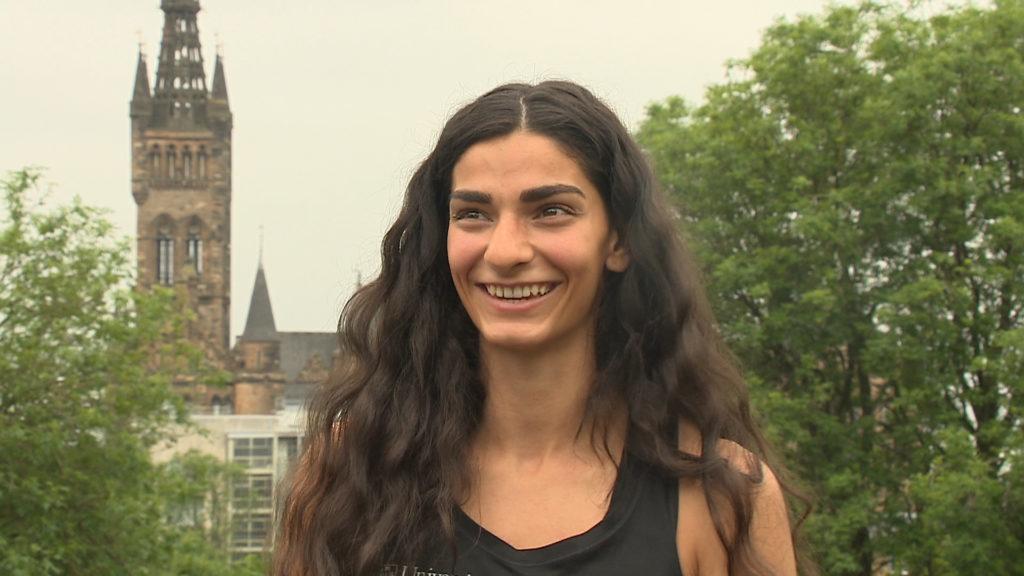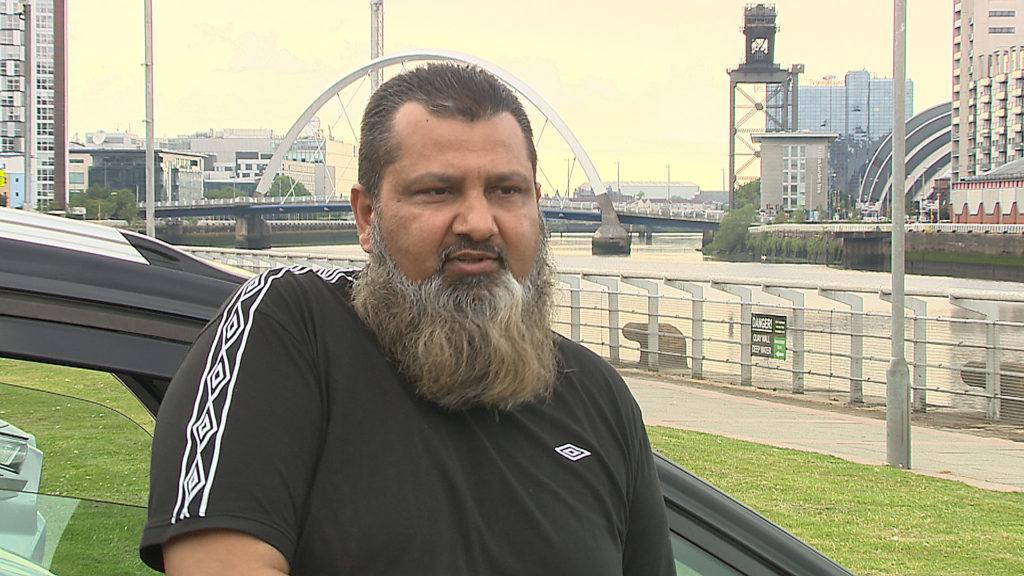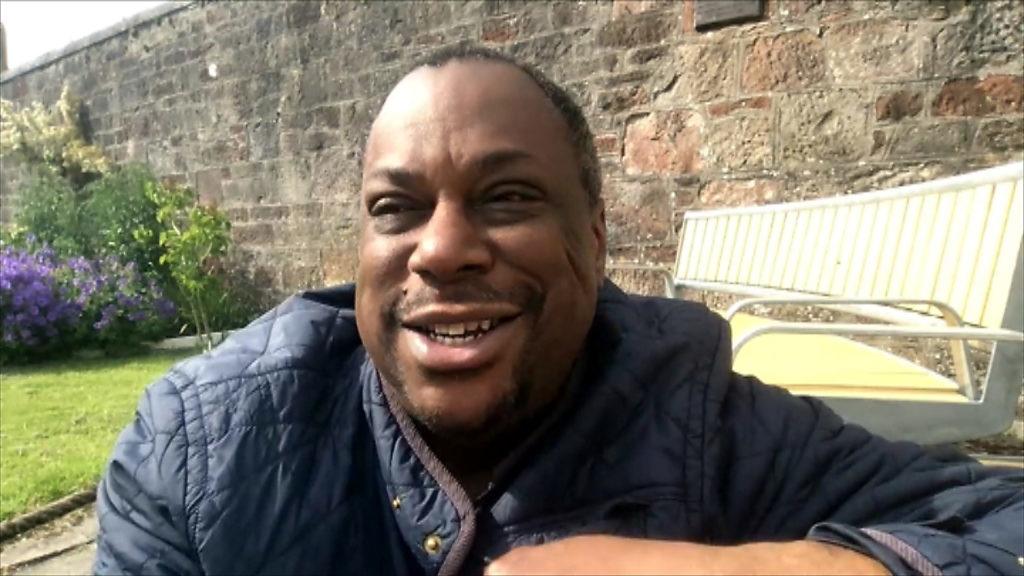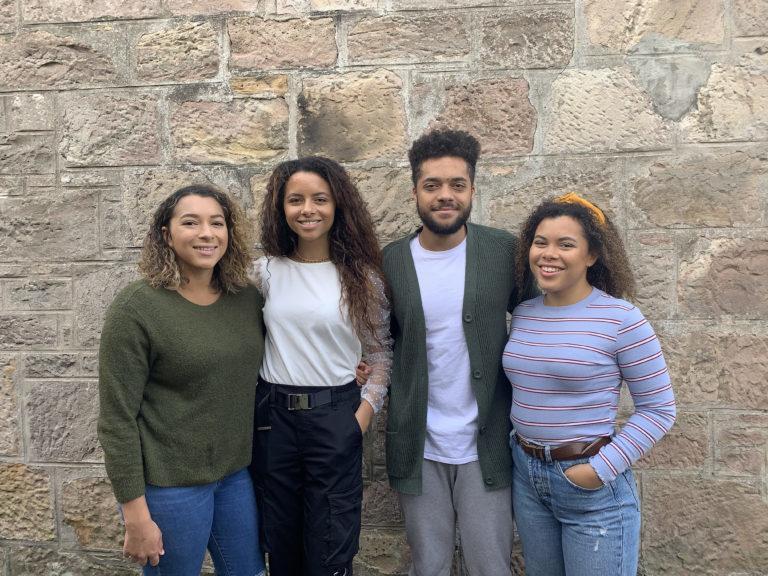“There have been so many incidents I can’t remember everything. And if I was to remember, I’d be a wreck.”
Paul Joseph is one of many Scots who have experienced racist abuse.
He says he’s been racially abused everywhere from filling up at the petrol station to playing football.
His four children have also experienced racist comments, opening up about heartbreaking situations they have faced at school.
But they are far from the only ones to face racist abuse in Scotland.
With race and equity hitting the headlines following the death of George Floyd in the US and the rise of the Black Lives Matter movement, STV News spoke to black and minority ethic people about their experiences of everyday racism.
Ellie
Ellie Wilson, from Edinburgh, says she has experienced racism for as long as she can remember.
The 22-year-old says: “When I was very young, even at primary school, I always just felt that I didn’t fit in because of the comments that people would say. The P word, if I could say that. I would be made fun of and told that I should go and make a curry or something.
“For like a very long time I felt very uncomfortable in myself and my own skin. I hated my own skin. I used to wear make up to make myself look paler and fit in more.

Ellie Wilson says she has felt uncomfortable in her own skin.
“People were asking me where I was from, where I was really from and having all of these things just really contributed to me feeling so insecure and so unhappy in myself.
“I just felt alien and completely uncomfortable in my skin. I remember being five years old and not understanding race and sitting in the bath tub just trying to wash my skin away so I could fit in and stop feeling so alien.”
Even now at university, Ellie has been taunted due to the colour of her skin.
“This guy who was in the rugby club shouted Mohammed Mohammed at me. Which was very strange because I’m Christian as well. It made me feel very uncomfortable.”
Saqib
Taxi driver Saqib Pirzada says he has been racially abused while simply doing his job. He has lived in Scotland for more than 20 years.
“Being an ethnic driver when you work the first thing they ask you, can I ask you where you come from? Why are you here?
“These are things that make you feel like you’re from a different planet.
“When we go outside Scotland, when we go on holiday, we don’t ask our taxi driver in Germany or France ‘can I ask you where you’re from, why you’re here?’ Because these are not things to ask.
“It makes you feel like they are trying to put a barrier between you and your feelings for this country.
“Scotland is my second home and it is not easy to settle down in a second home.
“If I make Scotland my second home it’s because I love Scotland.”

Saqib Pirzada has been attacked while working as a taxi driver.
Saqib says that after the Glasgow Airport attack and the Manchester bombing, things became worse for him.
The abuse he received went from verbal to physical.
“[A man] put the seatbelt round my neck and that was half four, five in the morning and he was pulling my neck with the seatbelt.
“It was all just very quick, another fellow driver came and he said what’s happening. And when I got out of the car he just ran away.”
Paul
Originally from London, Paul Joseph moved to the west of Scotland 55 years ago.
“Racism exists everywhere,” Paul says.
“And at first when you’re younger you get upset, you stand up every time someone calls you a name in the street you say bring it on.
“But as you get older you tend to realise that these people are inadequate themselves and therefore you should not rise to the bait.
“But I stress, the majority of people are lovely. The only problem is that normal folk don’t realise it goes on. It’s like the secret club of racists that are out there.
“They always choose their time when it’s one on one. I’ve been at the garage filling up with petrol and been abused, I’ve been out playing football and been abused.
“Work people asking, hey PJ what’s it like to be a n*****. It just goes on and on.”

Paul Joseph has been abused while simply filling his car with petrol.
Paul’s children have also been affected by racist abuse.
His son Reuben says: “I also did experience a lot of racism from other students. At times, I had kids through up a Nazi salute in the lunch hall to me.
“I’ve had a group of my pals say to me ‘could you go walk around the corner for me?’, so they could tell a racist joke, then invite me back round when they were all laughing.”
Daughter Florence adds: “I had a teacher at high school that used to behave very poorly towards me and I didn’t really say anything.
“She went round the world and said how you get varying shades of people around the world and you get white people, they’re the rich people, and you get black people in Africa, they’re the poor people.
“You get the beige people, Florence, you’re beige, you could be so ugly, you could have the ugliest face but because you’re beige you’re pretty.
“And then she went onto say about yellow Asian people, brown Asian people and used her hands to mimic the eye shape of Asian people and she did that in front of the whole class and didn’t feel any sort of qualms about doing that and that was for me, that really humiliated me.
“I went and spoke to mum about that. We went to the school and nothing was done. It was just laughed off, she didn’t mean it, she wasn’t being racist.

Paul ‘s children want things to change in schools.
“You don’t want to accuse someone of being racist but sometimes, actually, you just need to call a spade a spade.”
Paul says he and his wife were disgusted at what had happened to their daughter at school.
“My wife and I at the time, we felt so aggrieved that we actually put our house on the market to move to a more multicultural area, shall we say.
“It was only when we got a whisper that perhaps that teacher might retire that we stayed.
“I’m glad we stayed because all four children have done remarkably well.”
Making a change
Ellie believes that denying there is racism in Scotland is part of the problem.
She says: “We like to feel that Scotland is such a tolerant and open country and we don’t have racism here but that’s simply not the case and I think denying the problem is part of the problem.
“Just because you don’t see it doesn’t mean that it’s not there.”
Paul adds: “I remember being in a hospital in an open ward in Glasgow and a Pakistani doctor was dealing with a patient in the bed next to me and that patient said ‘I don’t want some p*** looking after me’. So even though his mum and dad said you need to have a good job, you need to do this and that, and be a doctor, no one escapes. Nobody escapes.
However Paul’s children are adamant that things can change in Scotland.
The Joseph siblings have launched a petition calling for a rethink on the teaching of ethnic diversity in schools and have written an open letter to the FM and the education secretary
Reuben says: “It kind of sparked from us wanting to do something and what can we do to address the issue of race in Scotland,
“It kept coming back to schools. If we’re going to start anywhere in addressing it, maybe schools would be the first place to start.”
They’ve gained support with more than 12,000 signatures.
Florence says: “It’s been phenomenal and what we want now is a response from John Swinney or Nicola, the powers that be to try, so that we can try to get this in motion and get this going”
Paul adds: “Racism and bigotry has no part in this society but it has to come from school, it has to come from teachers. And hopefully in a few generations we’ll have cracked the nut.”



























